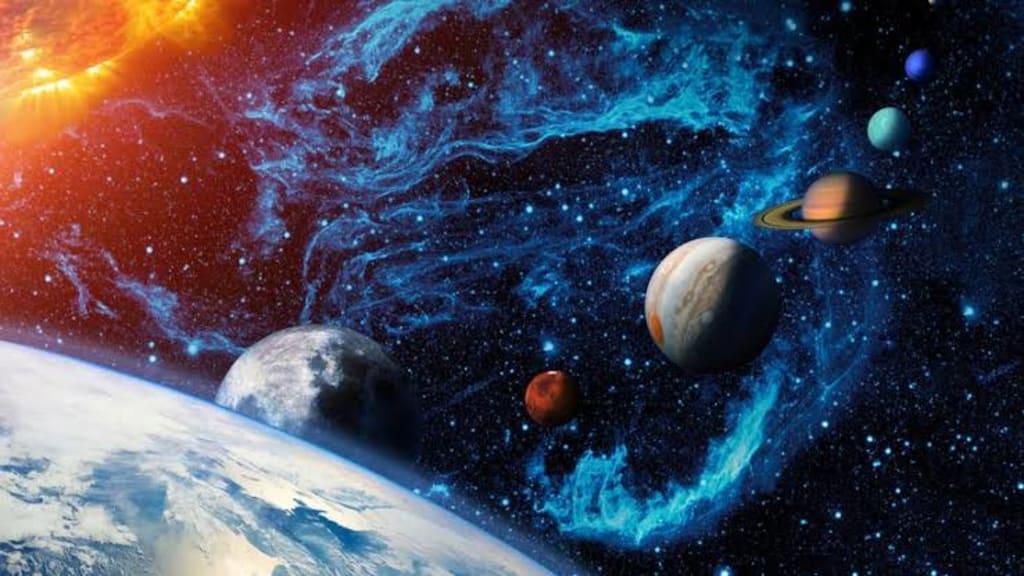5 Most Amazing Scientific Discoveries of the Decade
Decade of Discovery: Unveiling the Mysteries of the Universe

The past decade marked an extraordinary period of profound scientific breakthroughs that spanned various disciplines, pushing the boundaries of knowledge and reshaping our perceptions of the universe. This era witnessed researchers vigorously testing hypotheses, presenting evidence, and exploring distant realms that challenged not just our comprehension of our own planet, but also our understanding of the cosmos as a whole. This epochal period unveiled insights into one of humanity's most formidable challenges, illuminating more about the existence of some of the most devastating entities. In the following paragraphs, we will delve into five of the most remarkable scientific revelations of the 21st century's second decade.
Kicking off the list at number five is Pluto. Despite its reclassification as a dwarf planet in 2006, the year also marked the launch of the New Horizons spacecraft, destined for the outer reaches of our solar system to examine this diminutive world. Arriving at its destination in July 2015, New Horizons transmitted images and data that were nothing short of astonishing. Contrary to expectations of a monotonous frozen sphere, Pluto emerged as a dynamic celestial body with mobile glaciers, ice-covered peaks, and a colossal frozen nitrogen sea. The ice's perpetual, sluggish motion is driven by the warmth generated from the pressure above, causing it to ascend. This continuous renewal of the uppermost ice layer forged unanticipated surface formations, significantly augmenting our understanding of these enigmatic dwarf planets situated on the solar system's periphery.
Occupying the fourth spot on the list is the Higgs boson, a theoretical particle that had been a subject of speculation since 1964. At an expense of nearly five billion dollars, the construction of the world's largest apparatus culminated in a monumental moment in 2012 – the revelation that the elusive Higgs boson, also dubbed the "God particle," had been detected at CERN's Large Hadron Collider in Switzerland. This minuscule particle is of paramount significance, as it is a cornerstone of the subatomic realm, elucidating the enigma of mass in the universe. Interacting with other particles via the Higgs field, the boson confers mass upon objects. Its discovery marked the final jigsaw piece in the standard model of physics, inspiring scientists to repurpose the Large Hadron Collider for further investigation into even more bewildering phenomena.
Number three on the roster showcases Kepler, a game-changing satellite launched in 2009. For millennia, the cosmos have beckoned us to ponder the celestial expanse, revealing myriad stars and unveiling planets within our solar system. Yet, the prevalence of planets orbiting stars remained an enigma. Kepler's launch shattered this barrier by scrutinizing distant stars, measuring their luminosity fluctuations to infer planetary companions. By the end of the past decade, over 4,055 exoplanets were unearthed, a few even residing in habitable zones. This tally, expected to surge, underscores the potential commonality of systems akin to our own. As humanity's gaze deepens, the universe's richness expands, hinting at countless hidden treasures yet to be unveiled.
Positioned at number two is the ever-evolving climate. Earth's history is rife with climatic shifts, but today's alterations are distinctly different – they stem predominantly from human activities. The past decade uncovered the extent of our influence on the planet's climate system. In 2012 alone, Greenland shed a staggering 400 billion tons of ice, accompanied by Antarctica's loss of over 252 billion tons annually throughout the decade. This exponential rise from three decades prior portends a perilous future, with sea levels projected to surge by three feet by 2100, imperiling hundreds of millions. Beyond sea levels, the alarming decline of amphibians, marine mammals, and insect species underscores humanity's escalating impact. The last decade marked the awakening to the crisis; the impending one must herald a concerted effort toward resolution.
Finally, claiming the top spot are black holes – enigmatic cosmic entities whose mysteries were unlocked through dedicated research. Formed from dying stars' material collapsing inwards, black holes harbor intense gravitational forces that induce surreal phenomena. The collaboration of two black holes colliding in 2016 confirmed a century-old prediction by Einstein, creating gravitational waves that rippled through space-time. Yet, the crowning achievement of the last decade was the capture of an image of a supermassive black hole at the center of the Messier 87 galaxy. Situated 54 million light-years from Earth, this behemoth's mass equals 6.5 billion suns. Such colossal entities likely inhabit the hearts of galaxies, sculpting their structures through gravitational control. The last decade unveiled an astonishing tableau of discoveries, reshaping our comprehension of the universe, and instilling anticipation for the future's revelations.
In conclusion, the last decade stands as a watershed era for scientific exploration and discovery. Across disciplines, researchers probed the unknown, unraveling mysteries that span the cosmos and reshape our understanding of the universe. From Pluto's unexpected dynamism to the Higgs boson's elucidation of mass, from Kepler's unveiling of exoplanets to the wake-up call of climate change's human origins, and culminating in the extraordinary revelations surrounding black holes, humanity's quest for knowledge has left an indelible mark on this epoch. As we peer into the future, the excitement of uncharted realms and new revelations beckons, promising to propel our understanding even further.
Watch video on YouTube @BeyondScience






Comments
There are no comments for this story
Be the first to respond and start the conversation.